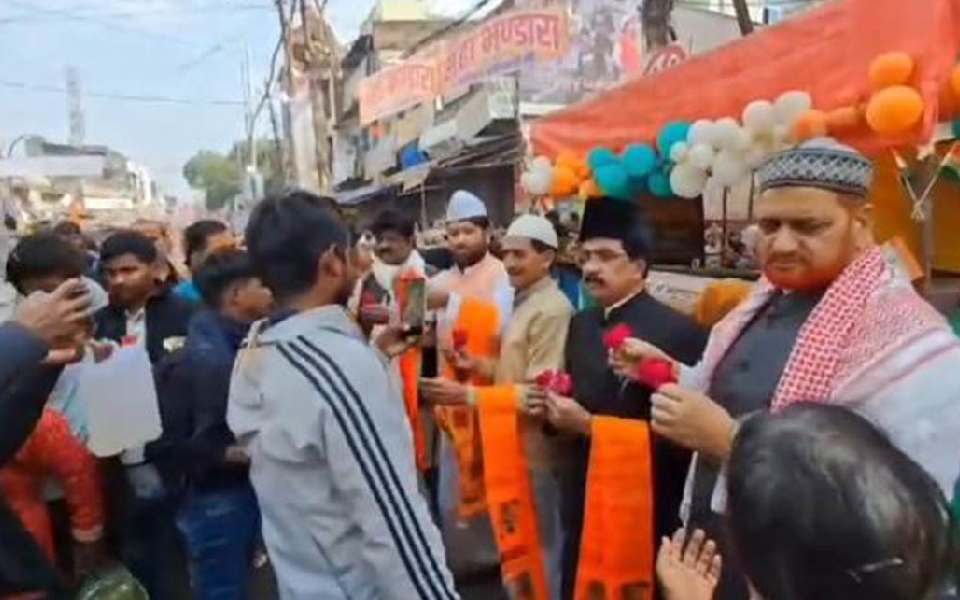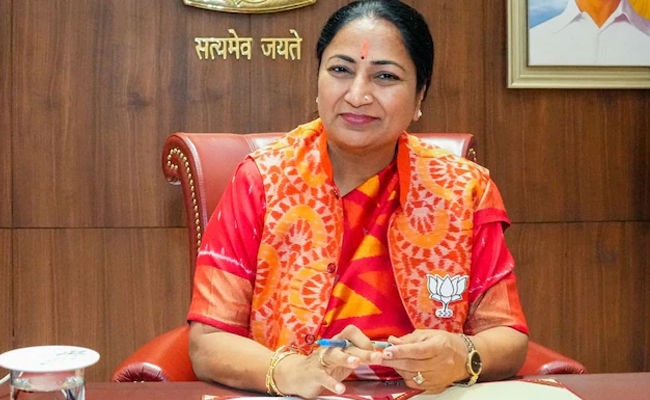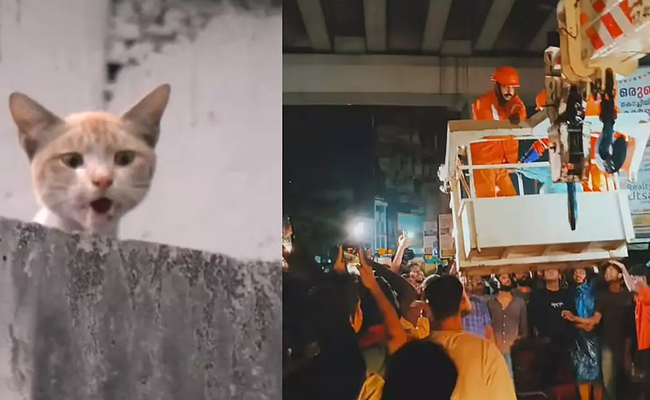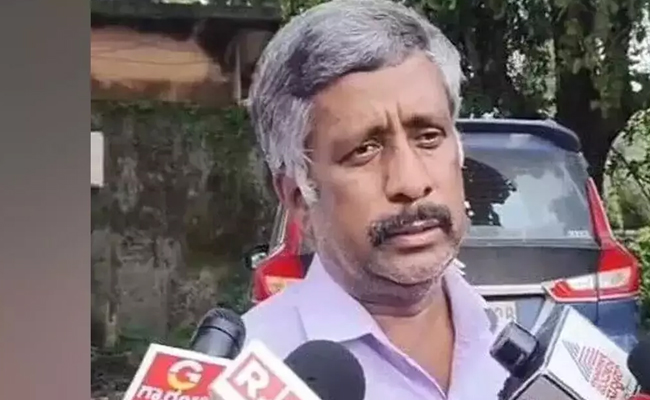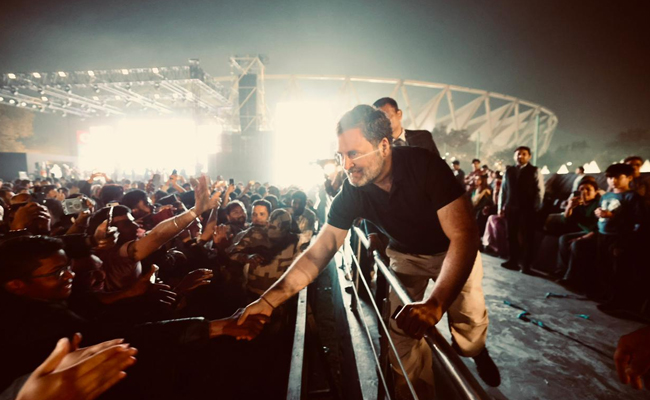Prayagraj: As pilgrims started gathering for the Mouni Amavasya Amrit Snan at the Maha Kumbh on the night of 28 January, heavy barricading near the Sangam Nose caused congestion. The influx of people continued, eventually leading to a half-kilometre-long blockage.
Amid this, rumours spread that Naga Sadhus were arriving for their holy dip, triggering panic among the crowd. The barricades were broken, and people rushed forward, trampling those who fell.
The stampede claimed 35 to 40 lives and left 60 others injured. The aftermath was horrifying, some searched desperately for their loved ones, while others clung to the hands of deceased relatives, fearing their bodies might be lost in the chaos. Hospital was overwhelmed with bloodied bodies and injured victims.
With arrangements collapsing and authorities halting entry into the area, thousands of pilgrims were stranded wherever they had reached. On 29 January, Muslims in over 10 areas of Prayagraj extended help, opening mosques, shrines, dargahs, imambaras, and their homes to accommodate 25,000 to 26,000 pilgrims. They provided food, warm bedding, and medical assistance to those in need.
Dainik Bhaskar reports on communal harmony amidst tragedy
According to Dainik Bhaskar, the stampede left thousands stranded as highways were jammed, halting buses and forcing many to spend the night on the streets. The following night, on 29 January, residents of Khuldabad, Nakhhas Kohna, Roshan Bagh, Himmatganj, Rani Mandi, and Shahganj welcomed pilgrims into their homes.
Mosques like Khuldabad Sabzi Mandi Mosque, Bada Tazia Imambara, Himmatganj Dargah, and Chowk Mosque turned into temporary shelters. Community members distributed tea, snacks, and meals. Localities organised mass food distribution (bhandaras), serving halwa-puri and other essentials to the stranded devotees.
"They were our guests, we took care of them"
Speaking to Dainik Bhaskar, Mohammad Irshad of Bahadurganj (Daira) said, "After the stampede, we saw thousands struggling in the freezing night. We immediately opened mosques and dargahs, welcoming as many people as possible into our homes. We ensured they had food and a place to stay. They were our guests in Prayagraj, and we did our best to look after them."
Masood Ahmed, a teacher from Chowk area, emphasised the spirit of humanity, stating, "Hindus were performing their religious rituals, and Muslims were fulfilling their duty of humanitarian service. It was our responsibility to ensure no one suffered due to lack of food or shelter. We helped elderly pilgrims reach the station safely. We only wanted those who came here to leave with a message of humanity."
"The Kumbh Mela itself came to Muslim neighbourhoods"
According to Afsar Mahmood of Khuldabad, "Despite earlier announcements that Muslims would not be allowed at the Kumbh, fate brought the event to our neighbourhoods. It was only natural for us to help."
Mohinuddin from Chowk shared a similar sentiment, saying, "We just didn’t want anyone to spend the night under the open sky. So, we opened our doors."
“Food and warmth were arranged overnight"
Mohammad Azam from Civil Lines recounted how residents quickly arranged blankets and quilts for those suffering in the cold.
"We did whatever we could to ensure people didn’t struggle through the night. Food was arranged immediately."
This display of communal harmony and humanitarianism during a time of distress is being widely appreciated. Dainik Bhaskar’s coverage highlights how the people of Prayagraj set an example of unity, proving that humanity transcends all divisions.
View this post on Instagram
#महाकुंभ2025 में कुंभ के दौरान अव्यवस्था और भारी भीड़ के कारण श्रद्धालुओं को मस्जिद में शरण लेनी पड़ी। वहाँ इमाम साहब और स्थानीय लोगों ने गंगा-जमुनी तहज़ीब और भाईचारे की अनूठी मिसाल पेश करते हुए भोजन और ठहरने की व्यवस्था कराई।
— Subham Agrawal (@iSubhamAgrawal) January 30, 2025
इमाम साहब के इस सेवा भाव को दिल से नमन#MahaKumbh pic.twitter.com/XquiCWZGbK
Let the Truth be known. If you read VB and like VB, please be a VB Supporter and Help us deliver the Truth to one and all.
Kolkata (PTI): Alleging that her West Bengal counterpart Mamata Banerjee had approached the Supreme Court to stall the SIR exercise to prevent the identification of infiltrators, Delhi Chief Minister Rekha Gupta on Sunday claimed that the people of the state have made up their minds to dislodge the Trinamool Congress from power.
The TMC countered strongly, urging Gupta to "look into her own backyard" and accused her of making absurd allegations against the TMC government without checking facts.
Addressing participants at the 'Nari Sankalp Yatra' organised by the BJP's women's wing at Science City auditorium here, Gupta alleged that the "hands-off" and appeasement policies of the TMC government had allowed thousands of infiltrators to enter the state in recent years.
She claimed that this had put a strain on basic rights such as access to water, electricity, ration, education, livelihood and the right to vote for genuine citizens.
"She wants to perpetuate this and hence is trying to stall the SIR exercise, which aims at identifying and deporting infiltrators. Imagine a chief minister going to the apex court to argue against an exercise meant to ensure free and fair polls," Gupta said.
The BJP leader alleged that appeasement politics had reached an "alarming level" under the TMC regime.
Raising concerns over women's safety, she claimed that women in the state were not secure despite having a woman chief minister.
Referring to the rape-murder of a woman doctor at RG Kar Hospital, Gupta alleged that the state government had failed to respond adequately to such crimes.
She also referred to the alleged rape of a woman medic in Durgapur and another law student on a Kolkata college campus, claiming that criminals had been emboldened to commit brutalities against women.
She alleged that in crimes against women, overall crime incidents and child marriages, West Bengal remained among the top -- "a slur on a state which once led intellectual and social movements and set examples for the rest of the country," she said.
Criticising the state government's welfare initiatives, she said schemes such as Kanyashree were built on "false claims" and asserted that women needed security rather than assurances.
Accusing the state government of blocking central schemes, Gupta alleged that funds worth "lakhs of crores of rupees" had not reached the poor due to non-implementation of programmes such as Ayushman Bharat, PM Awas Yojana and Jal Jeevan Mission by the state.
"You are only interested in renaming projects and taking credit," she said.
Gupta also alleged that the education sector in the state had been adversely affected, saying several state-run schools had closed due to a shortage of teachers and that the government was opposed to the National Education Policy.
Drawing a comparison with BJP-ruled Delhi, Gupta said, "People have already voted out 'Bhaia' (a reference to former Delhi chief minister Arvind Kejriwal). Now it is your turn to bid farewell to 'Didi'." Calling upon women to resist what she termed "strong-arm tactics", she urged them to assert their strength, invoking the imagery of Goddess Durga.
"Bengal has the right to live with dignity, and women have the right to live with dignity," she added.
Reacting to Gupta's allegations, West Bengal Women and Child Welfare minister Shashi Panja accused her of making "absurd allegations" against the Trinamool Congress government ahead of elections.
Panja alleged that during Gupta's tenure in Delhi, several incidents had raised serious concerns, including reports of missing young women and a blast near the Red Fort.
She also criticised the air pollution situation in the national capital, claiming that people were struggling to breathe.
The TMC leader said that despite being in power for a year, Gupta was making "tall claims" instead of addressing key issues in Delhi.
Panja further alleged that the Delhi CM visited West Bengal during elections to "peddle false allegations" against the state government.
Rebutting Gupta, the TMC said in a post on X said, "Madam why did you go off-script again? For your edification, here are the cold, hard facts: In total cases of crimes (IPC + SLL), Bengal ranks a respectable 15th, far safer than BJP-ruled Uttar Pradesh, Maharashtra, and Gujarat, which languish near the bottom."
"In overall crime rate, Bengal sits comfortably at 28th. Who's second? Your own Delhi. Double Engine Gujarat and Haryana grab 4th and 5th as top-tier crime havens," the TMC said.
"In child marriage, Assam again takes the shameful pole position. And yet you dare lecture Bengal? Stop embarrassing yourself, stop the hypocrisy, and maybe fix the rotting mess in your own backyard before pointing fingers at a state that's outperforming your disasters on every key metric," the TMC countered.

